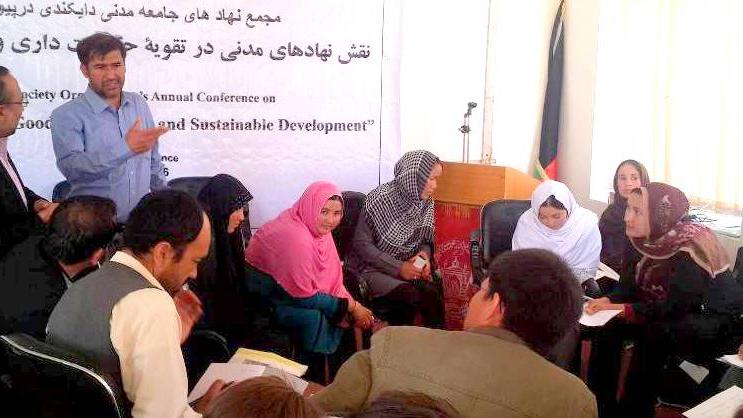NILI - Emphasizing the key role of civil society in promoting good governance in local government was the aim of a UNAMA-backed forum in Daikundi province.
Around 80 participants from civil society organizations (CSO) and government departments, as well as community elders, media and UN staff attended the one-day event in the provincial capital of Nili.
The forum underscored the role of CSOs’s in promoting good governance and sustainable development, highlighted the significance of coordination and joint activities, and emphasized the importance of accountability and transparency.
Daikundi province -- originally a district of Uruzgan province -- was established around a decade ago. It is a remote, largely rural province lacking in infrastructure with most of its population comprised of ethnic Hazara.
The major challenges facing civil society in the province include a need for greater capacity-building and more awareness-raising activities.
Essa Batoorian, the head of the technical service department likened CSO’s to the strong shoulders of a person, where that person is the local administration: “Empowered civil society means a strengthened provincial government.”
Mr. Batoorian said civil society plays a key role in highlighting the perspectives and concerns of all segments of society, which can then be incorporated into local government project planning and implementation.
Hadi Rahimizada, a member of Daikundi’s provincial council, acknowledged the significant role of civil society in communicating with the local population on practical issues, such as public health and, where necessary, to encourage changes in community behavior.
Mr. Rahimizada said, however, that in order for CSO’s to maintain their reputation and the trust of the community, they needed to remain apart from political involvement.
Rahmatullah Shariati, a civil society activist in Daikundi, said that with the support of organizations such as UNAMA, grassroots groups had been able to improve coordination among themselves.
Mr. Shariati said better coordination was a major achievement which helped to improve the quality of service delivery and enable the local population’s voice to be heard at every stage of national and provincial processes, as well as helping in the fight against corruption.
“To build trust between the provincial administration and local population, we must improve governance and service delivery. That’s possible when we empower civil society to engage in local planning and decision making,” said Mr. Shariati.
UNAMA is mandated to support the Afghan Government and the people of Afghanistan as a political mission that provides good offices; promotes coherent development support by the international community; supports the process of peace and reconciliation; monitors and promotes human rights and the protection of civilians in armed conflict; promotes good governance; and encourages regional cooperation.






